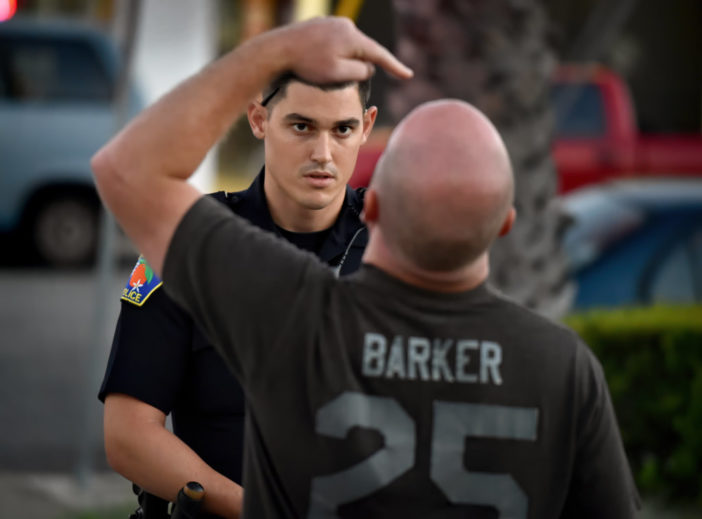On a recent Saturday night, Office Colten Ivans of the Orange Police Department patrolled the streets of Orange looking for impaired drivers.
He spotted a Honda Civic with fading black paint turn onto Chapman Avenue and raced to catch up with it. The driver rolled through the red light at Main Street and then hit the breaks, revealing a broken break light.
Ivans flipped on his red and blue lights, forcing the driver to pull into a gas station’s parking lot. When Ivans walked up to the driver’s window he smelled the odor of alcohol coming from inside the car. He asked the man to remove his sunglasses and hat, revealing the driver’s bloodshot and watery eyes.
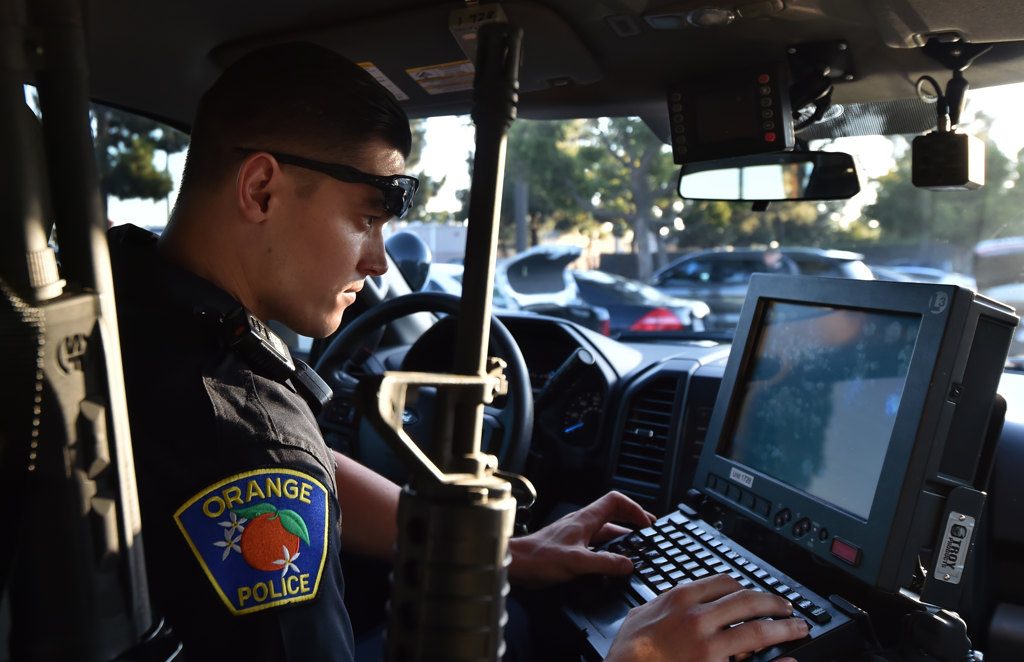
Orange PD Officer Colten Ivans logs into the department’s patrol computer system before leaving the police parking lot tasked with finding people driving under the influence.
Photo by Steven Georges/Behind the Badge OC
Those are the initial signs of someone who is driving under the influence of alcohol. After failing a roadside sobriety test with a blood alcohol content of 0.1, the 33-year-old Santa Ana man was arrested on suspicion of DUI.
Back at the department’s detention center, a forensic phlebotomist drew blood from the driver as evidence for the future trial. Within an hour, he was handed a citation and released onto the street.
This was just the beginning of Ivans’ Saturday night shift.
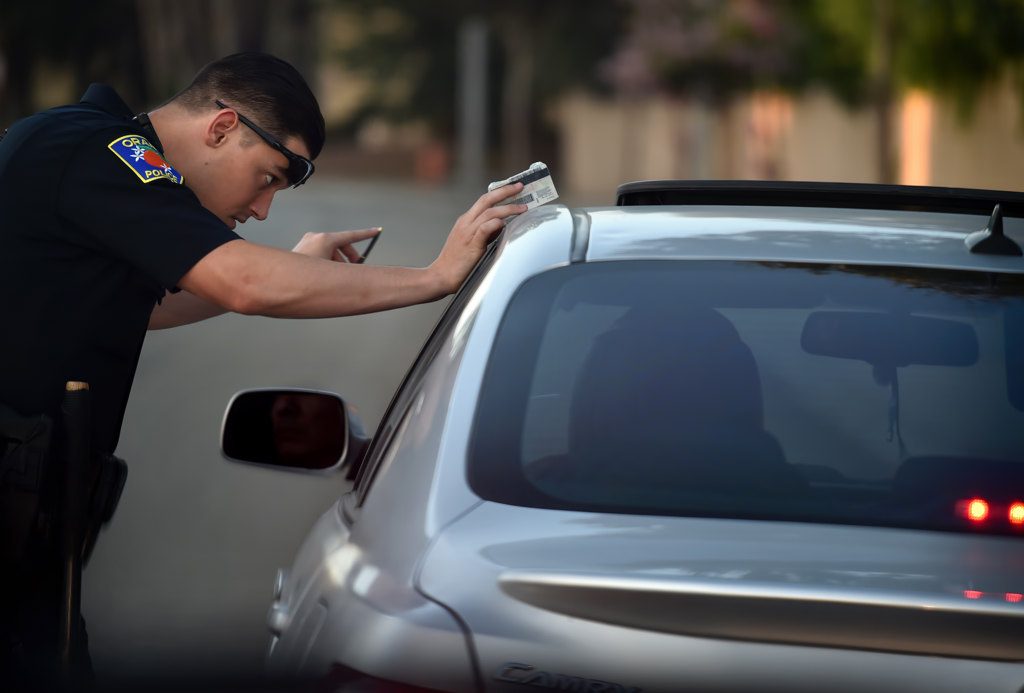
After pulling over a driver for, among other things, not having current license plate tags, Orange PD Officer Colten Ivans assess the driver and gives a quick pre-test with the driver still in the car. After passing, the driver was let off with a warning.
Photo by Steven Georges/Behind the Badge OC
As the only full-time DUI officer with the Orange Police Department, Ivans leads the campaign to get impaired drivers off the road. More people appear to be getting the message, with the numbers of DUIs trending downward over the last three years: 793 arrests in 2014, 785 arrests in 2015 and 642 arrests in 2016.
As of Oct. 31, Orange officers have arrested 386 people for DUI this year.
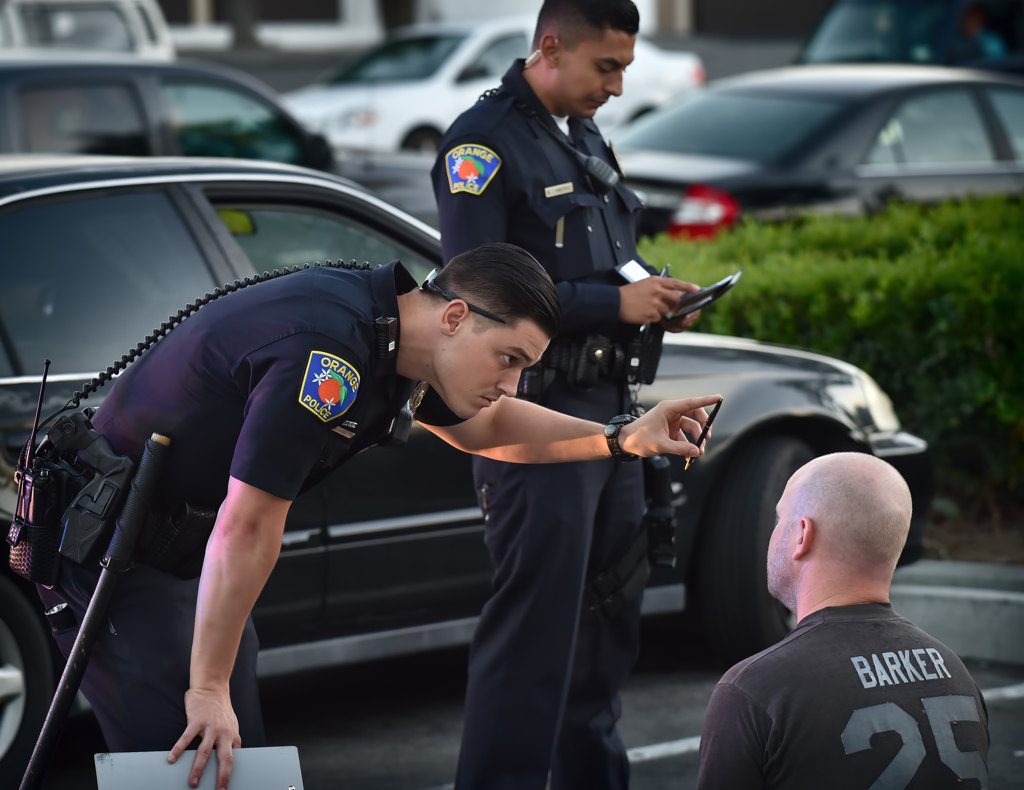
Orange PD Officer Colten Ivans administers a series of DUI tests, with Officer Manny Landeros as backup, to a driver who was stopped. The driver did not pass the tests.
Photo by Steven Georges/Behind the Badge OC
Ivans came to the Orange Police Department from the Kings County Sheriff’s Department, which administers the jail in his Central Valley hometown of Hanford. He learned about the position when one of his academy classmates was visited by a background investigator with the Orange PD.
After three and half years with the department, Ivans can’t imagine returning to his small hometown. As the newest member of Orange’s Drug Recognition Expert Team, Ivan patrols the streets of Orange for impaired drivers and examines drivers rolling through monthly DUI checkpoints.
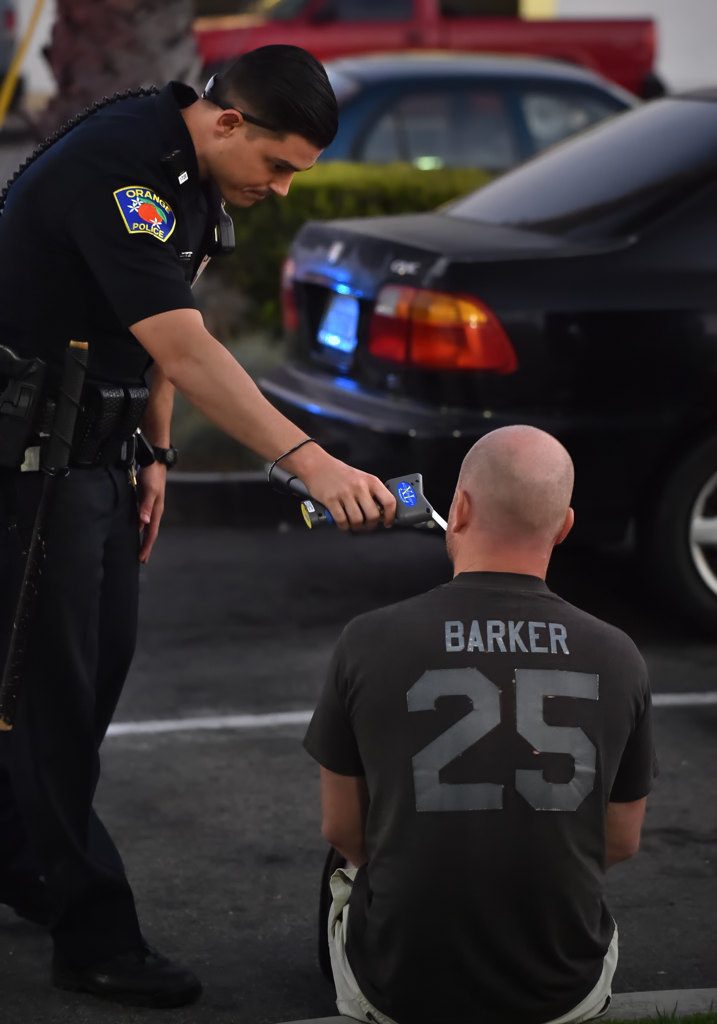
As a final step, Orange PD Officer Colten Ivans administers a DUI breath test to a driver who was stopped. The driver did not pass the tests.
Photo by Steven Georges/Behind the Badge OC
“It’s important to our department to have officers learn about DUIs,” Ivans said. “Orange has a stellar reputation for looking for and finding impairment.”
As a patrol officer, Ivans saw the carnage from fatal traffic collisions involving impaired drivers. He also developed an interest in the science of investigating DUI by watching the drug recognition experts investigate these collisions.
Ivans has big shoes to fill as the successor to Officer Daniel O’Neil-Tennant, who received Mothers Against Drunk Driving Southern California’s “Top Cop” award for arresting more impaired drivers in 2016 than any other officer in Orange, Riverside, San Bernardino and San Diego counties.
What’s even more astonishing is O’Neil-Tennant made 273 DUI arrests last year — 59 more than the second-best performer, a Fontana police officer with 214 arrests.
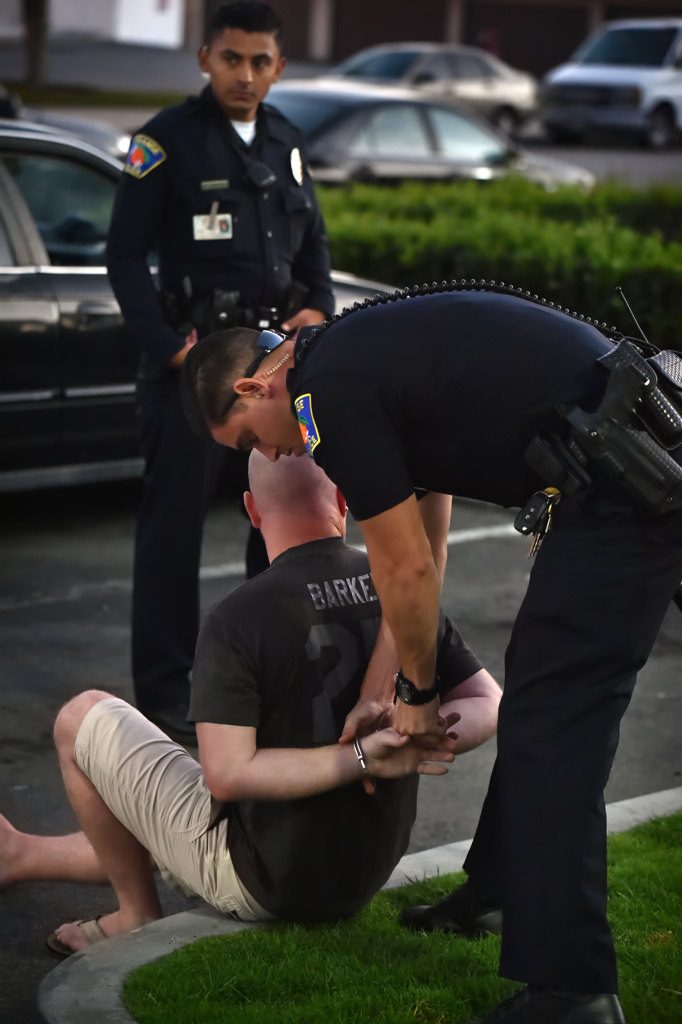
Orange PD Officer Colten Ivans places handcuffs on a driver who failed a series of DUI test as Officer Manny Landeros looks on.
Photo by Steven Georges/Behind the Badge OC
“I took an interest in DUI enforcement because I was able to make an immediate impact by taking an impaired driver off the street,” O’Neil-Tennant said. “From there, it just progressed to me just wanting to get better at it by doing more training.”
O’Neil-Tennant recently rejoined the patrol unit after an 18-month stint on the Drug Recognition Expert Team. The role is temporary, so officers can do additional training with DUI consultant Cavenaugh & Associates and the California Highway Patrol, O’Neil-Tennant said.
Ideally, officers use their experience in DUI enforcement to teach other patrol officers, he said.
Since joining the OPD in May 2015, O’Neil-Tennant has seen the command staff put an emphasis on DUI enforcement. But the rising popularity of ride-hailing services like Lyft and Uber has helped bring down the number of DUI arrests.
“I see significantly less younger people driving impaired,” O’Neil-Tennant said. “When I’ve patrolled our downtown area, it’s inundated with Uber and Lyft drivers. So I’d say it’s made a positive impact.”
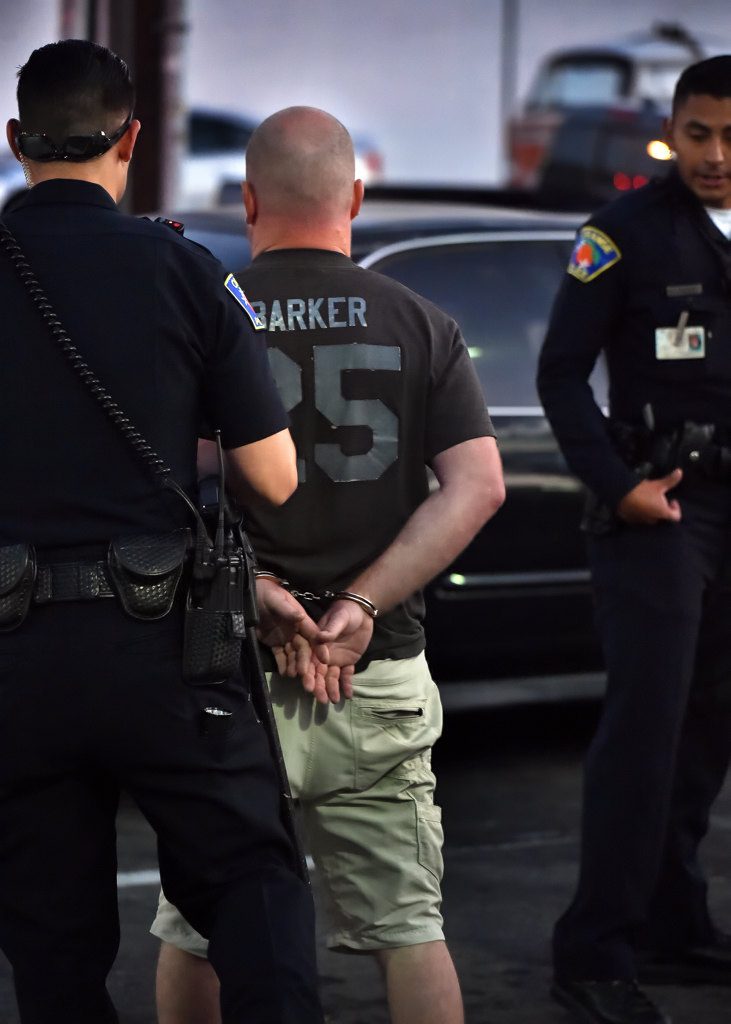
A driver is lead to a patrol car by Orange PD Officer Colten Ivans after being placed under arrest for failing several DUI tests.
Photo by Steven Georges/Behind the Badge OC
However, DUI enforcement isn’t all about drunk driving.
People drive after taking prescription medications even though they’ve been warned not to. The decision to drink while on medication also can have deadly consequences for drivers, Ivans said.
California voters’ decision to legalize recreational marijuana has led many drivers to mistakenly believe it’s OK to drive after smoking or ingesting the controlled substance. Orange officers now are taking seminars on how to investigate if someone is under the influence of marijuana.
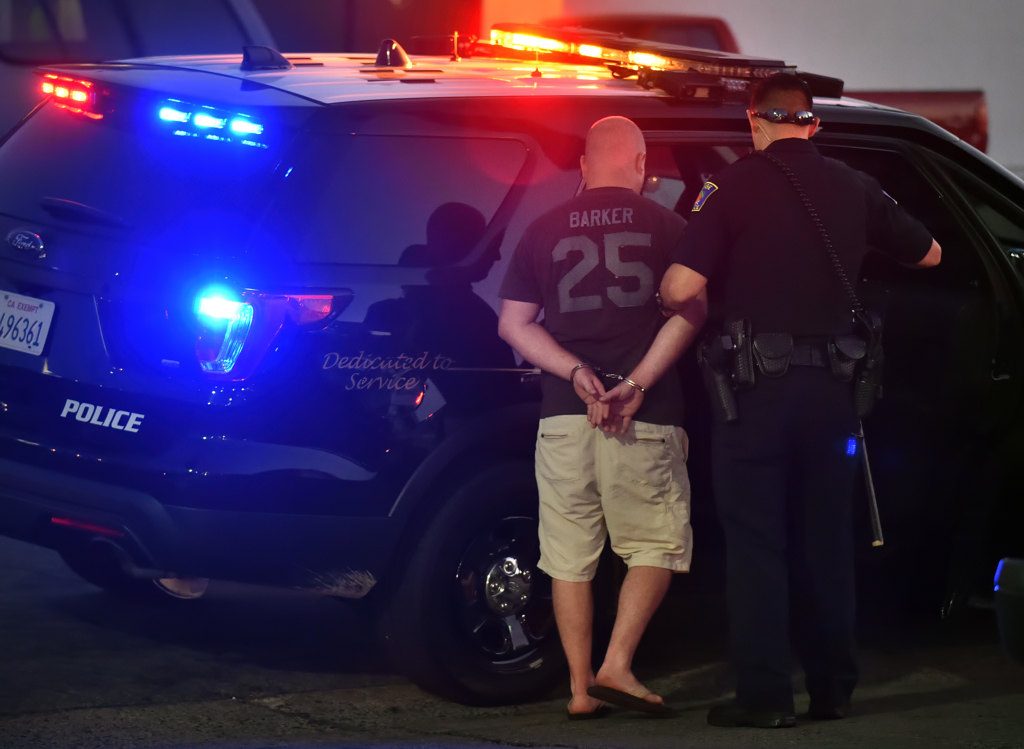
A driver is lead to a patrol car by Orange PD Officer Colten Ivans after being placed under arrest for failing several DUI tests. Photo by Steven Georges/Behind the Badge OC
“Marijuana stays in your system for six hours,” O’Neil-Tennant said. “For much less marijuana, you’re getting much more of a high.”
Ivans said he’s encountering more people driving on a dangerous combination of alcohol and marijuana.
“You add marijuana into that and it distorts your time and distance perception,” he said.
 Behind the Badge
Behind the Badge
